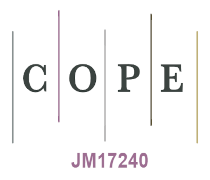Style atrybucji a reakcje na własną porażkę – projekt badań własnych
DOI:
https://doi.org/10.18778/1427-969X.11.09Słowa kluczowe:
attributional styles, learned helplessness, effectiveness of task fulfillingAbstrakt
The article focuses on the links between attributional style (regarded as personal trait) and succeeding, in the situation of previous failure. The attempts of research and describing these mechanisms derive from the researches of learned helplessness. To be precise from the Attributional Helplessness Model of Abramson, Seligman i Teasdale. The aim of this article is attempt to explain the lack of direct proofs between attributional styles and learned helpless arising whereas there are reliable proofs between particular attributional styles and succeeding. The article begins with survey of the most important conceptions of helplessness. Then some researches of links between succeeding and attributional styles were described. Finally the attempt of explaining the lack of direct proofs between attributional styles and learned helpless is proposed. This explanation is based on distinguishing between the situation when a lack of control is experienced (helplessness training) and the situation of experiencing single failure. The article ends with the proposal of the experiment which is planed to be a empirical verification hypothesis that individual attributional styles have relevant impact on the motivation and succeeding in the situation of previous failure.
Bibliografia
Abramson L. Y., Seligman M. E. P., Teasdale J. (1978), Learned helplessness in humans Critique and reformulation, "Journal of Abnormal Psychology", 87, 49–74
Google Scholar
DOI: https://doi.org/10.1037//0021-843X.87.1.49
Corr J. P., Gray J. A. (1995), Attributional style, socialization and cognitive ability as predictors of sales success: A validity study, Person. Indiv. Diff., 18, 2, 241–252
Google Scholar
DOI: https://doi.org/10.1016/0191-8869(94)00153-J
Forsterling F. (2005), Atrybucje, Gdańskie Wydawnictwo Psychologiczne, Gdańsk
Google Scholar
Kofta M., Sedek G. (1993a), W poszukiwaniu uniwersalnych wyznaczników zjawiska wyuczonej bezradności, [w:] M. Kofta, G. Sedek, Psychologia aktywności: zaangażowanie, sprawstwo, bezradność, Wydawnictwo Nakom, Poznań, 133–170
Google Scholar
Kofta M., Sedek G. (1993b), Wyuczona bezradność. Podejście informacyjne, [w:] M. Kofta, G. Sedek, Psychologia aktywności: zaangażowanie, sprawstwo, bezradność, Wydawnictwo Nakom, Poznań, 171–223
Google Scholar
Peterson Ch., Villanova P. (1988), An Expanded Attributional Style Questionnaire, "Journal of Abnormal Psychology", 97, 1, 87–89
Google Scholar
DOI: https://doi.org/10.1037//0021-843X.97.1.87
Satterfield J. M., Monahan J., Seligman M. E. P (1997), Law School Performance Predicted by Explanatory Style, "Behavioral Sciences and the Law", 15, 95–105
Google Scholar
DOI: https://doi.org/10.1002/(SICI)1099-0798(199724)15:1<95::AID-BSL255>3.0.CO;2-Y
Schulman P., Seligman M. E. P., Amsterdam D. (1987), The Attributional Style Questionnaire is not transparent, Behav. Res. Ther., 25, 5, 391–395
Google Scholar
DOI: https://doi.org/10.1016/0005-7967(87)90016-7
Seligman M. E. P. (1993), Optymizmu można się nauczyć, Media Rodzina, Poznań
Google Scholar
Seligman M. E. P., Schulman P. (1986), Explanatory Style as a Predictor of Productivity and Quitting Among Life Insurance Sales Agents, "Journal of Personality and Social Psychology", 50, 4, 832–838
Google Scholar
DOI: https://doi.org/10.1037//0022-3514.50.4.832
Seligman M. E. P., Nolen-Hoeksema S., Thornton N., Thornton K. M. (1990), Explanatory Style as a Mechanism of Disappointing Athletic Performance, "Psychological Science", 1, 143–146
Google Scholar
DOI: https://doi.org/10.1111/j.1467-9280.1990.tb00084.x
Sedek G. (1982), Influence of attributions of causality on learned helplessness, "Polish Psychological Bulletin", 13, 29–37
Google Scholar
Sedek G. (1983), Przegląd badań i modeli teoretycznych zjawiska wyuczonej bezradności, "Przegląd Psychologiczny", 26, 587–610
Google Scholar
Yee P. L., Pierce G. R., Ptacek J. T., Modzelsky K. L. (2003), Learned helplessness attributional style and examination performance: Enhancement effects are not necessarily moderated by prior failure, "Anxiety, Stress and Coping", 16, 4, 359–373
Google Scholar
DOI: https://doi.org/10.1080/0003379031000140928
Pobrania
Opublikowane
Jak cytować
Numer
Dział
Licencja

Utwór dostępny jest na licencji Creative Commons Uznanie autorstwa – Użycie niekomercyjne – Bez utworów zależnych 4.0 Międzynarodowe.








